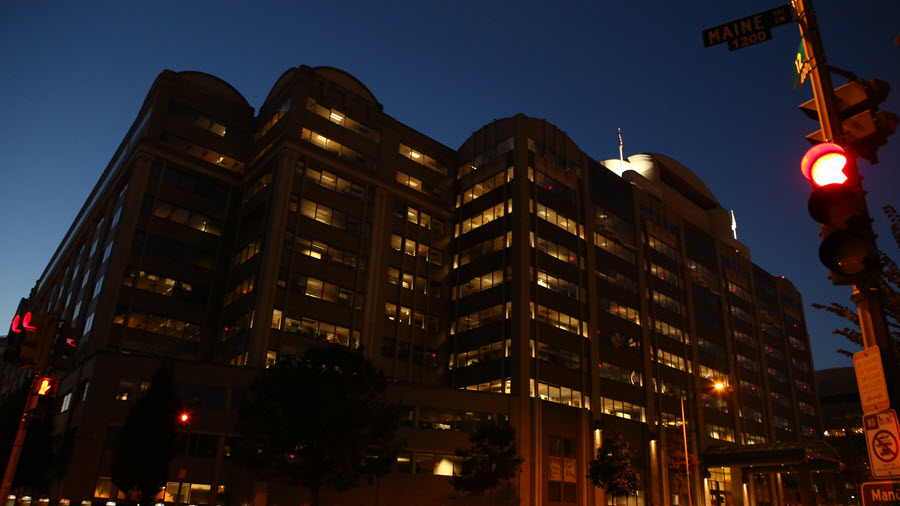FCC Moving to Repeal Bright-Line Net-Neutrality Rules

The smarter way to stay on top of broadcasting and cable industry. Sign up below
You are now subscribed
Your newsletter sign-up was successful
In a sweeping decision, FCC chair Ajit Pai is proposing to essentially wipe the slate clean of most net-neutrality regulations adopted under the Title II-based 2015 Open Internet order by the then Tom Wheeler-led FCC.
The Restoring Internet Freedom Draft Order circulated earlier today (Nov. 21) repeals the bright-line rules against blocking, degrading and paid prioritization and pre-empts any attempts by states and localities to impose their own versions, according to senior FCC officials speaking on background.
The order will be publicly released Wednesday (Nov. 22), and is certain to get major pushback from Democrats on the Hill and activists elsewhere.
The FCC concluded that the costs of the rules, which were substantial, outweigh the benefits. Eliminating virtually all the rules could leave the field open for Congress to adopt its own targeted, bright-line rules, as some Republicans were indicating following circulation of the item.
But it retains and even adds a transparency requirement that ISPs will have to publicly disclose if they engage in blocking, throttling, affiliate prioritization, or paid prioritization, and just what they are blocking or prioritizing.
The FCC will use transparency as the means of getting at potential anticompetitive conduct.
The Department of Justice could then decide whether those were threats to competition, and the Federal Trade Commission can police the internet practices of ISPs as it does with Google or Facebook, using its authority against unfair or deceptive activity.
ISPs have pledged not to block of throttle, and the officials said the FCC expects them to hold to those promises.
The Restoring Internet Freedom Draft Order will change ISPs from a telecommunications service under "heavy handed" Title II to an information service under "light touch" Title I, the FCC officials said.
Mobile broadband would return to a private mobile radio service designation, so both wired and wireless would no longer be under Title II mandatory access conditions.
The FCC order re-evaluates the agency's authority under Sec. 706 and concludes it is not an independent grant of authority. Sec. 706 is the congressional directive to ensure that advanced telecommunications is made available to all Americans in a reasonable and timely fashion.
It modifies the transparency rule with the targeted disclosure additions. The item would eliminate additional reporting obligations under the Title II order because the costs outweigh consumer benefits.
The item eliminates the general-conduct standard as too vague.
Officials said they had vetted the millions of comments on the item, but pointed out that there were millions of form letters on both sides. They said to the extent the comments just stated opinions and did not offer new facts did not have much bearing on the order.
They said 7.5 million of those comments were the same comment submitted repeatedly.
Democratic FCC commissioner Jessica Rosenworcel, who voted for the 2015 Open Internet order, labeled the new order offensive and called for public hearings on it before the Dec. 14 vote, saying: “Today the FCC circulated its sweeping rollback of our net-neutrality rules. Following actions earlier this year to erase consumer privacy protections, the Commission now wants to wipe out court-tested rules and a decade’s work in order to favor cable and telephone companies. This is ridiculous and offensive to the millions of Americans who use the Internet every day.
"Our Internet economy is the envy of the world because it is open to all," she continued. "This proposal tears at the foundation of that openness. It hands broadband providers the power to decide what voices to amplify, which sites we can visit, what connections we can make, and what communities we create. It throttles access, stalls opportunity, and censors content. It would be a big blunder for a slim majority of the FCC to approve these rules and saddle every Internet user with the cruel consequences.
"I’ve called for public hearings before any change is made to these rules, just as Republican and Democratic Commissions have done in the past," Rosenworcel added. "We should go directly to the American public to find out what they think about this proposal before any vote is taken to harm net neutrality.”
The smarter way to stay on top of broadcasting and cable industry. Sign up below
